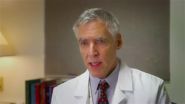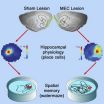Controversial medication has benefits for breastfeeding
2014-11-11
(Press-News.org) A controversial medication used by breastfeeding women should not be restricted because of the benefits it offers mothers and their babies, according to researchers at the University of Adelaide.
The medication domperidone has recently been the subject of warnings from the European Medicines Agency based on research that there is a link between the medication and fatal heart conditions.
Domperidone has been banned in the United States for years because of fatal cardiac arrhythmias among cancer patients who had been prescribed the drug to prevent nausea and vomiting.
However, in many countries domperidone is used to help women experiencing difficulties with breastfeeding, as it's known to increase milk supply. In line with the overseas experience, Australia's Therapeutic Goods Administration is currently reviewing the need for further restrictions on the use of domperidone.
"There are currently calls for domperidone to be banned for use or heavily restricted because of claims it also puts mothers' lives at risk, but there is absolutely no evidence of this," says NHMRC Early Career Fellow Dr Luke Grzeskowiak from the University's Robinson Research Institute.
"Unfortunately the different uses of the medication have been tied into the one outcome - fatal cardiac arrhythmia. But its use in older and sicker patients compared with nursing mothers is completely different.
"The risk of fatal heart conditions was seen to be increased primarily in men, and among people aged over 60 years. No studies to date have shown an increased cardiac risk from domperidone for women trying to breastfeed," Dr Grzeskowiak says.
In a letter published in the Journal of Human Lactation, Dr Grzeskowiak says despite its use being "off-label", domperidone remains widely used in clinical practice for women experiencing low milk supply, with no reports of significant adverse effects.
"In contrast, recent research has demonstrated that domperidone is well tolerated by breastfeeding mothers and is associated with modest improvements in breast milk volume. This is important, as breastfeeding is associated with significant reductions in infant disease and mortality, as well as providing long-term benefits for the mother, with reductions in the incidence of certain cancers," he says.
"These wide-ranging benefits should outweigh what amounts to largely theoretical risks associated with the use of domperidone for low milk supply. Further restrictions regarding the use of domperidone for lactation do not appear warranted and risk subjecting breastfeeding women to further emotional trauma as well as not being in the interests of the long-term health of them or their babies."
INFORMATION:
Media Contact:
Dr Luke Grzeskowiak
NHMRC Early Career Fellow
Robinson Research Institute
The University of Adelaide
Phone: +61 8 8133 2130
luke.grzeskowiak@adelaide.edu.au END
[Attachments] See images for this press release:

ELSE PRESS RELEASES FROM THIS DATE:
2014-11-11
This news release is available in German. X-rays are widely used in medicine and in materials science. To take a picture of a broken bone, it is enough to create a continuous flux of X-ray photons, but in order to study time-dependent phenomena on very short timescales, short X-ray pulses are required. One possibility to create short hard X-ray pulses is hitting a metal target with laser pulses. The laser rips electrons out of the atoms and makes them emit X-ray radiation. Electrical engineers at the Vienna University of Technology (TU Wien) together with researchers ...
2014-11-11
With the help of mouse models, induced pluripotent stem cells (iPSCs) and the "tooth fairy," researchers at the University of California, San Diego School of Medicine have implicated a new gene in idiopathic or non-syndromic autism. The gene is associated with Rett syndrome, a syndromic form of autism, suggesting that different types of autism spectrum disorder (ASD) may share similar molecular pathways.
The findings are published in the Nov. 11, 2014 online issue of Molecular Psychiatry.
"I see this research as an example of what can be done for cases of non-syndromic ...
2014-11-11
An international research team led by Dan Distel, director of the Ocean Genome Legacy Center of New England Biolabs at Northeastern University, has discovered a novel digestive strategy in shipworms. The breakthrough, the researchers say, may also be a game-changer for the industrial production of clean biofuels.
To start, it's important to note that shipworms, the so-called "termites of the sea," aren't actually worms--they're bizarre clams that ...
2014-11-11
WASHINGTON - Hospital workers who deal directly with patients wash their hands less frequently as their workday progresses, probably because the demands of the job deplete the mental reserves they need to follow rules, according to new research published by the American Psychological Association.
Researchers led by Hengchen Dai, a PhD candidate at the University of Pennsylvania, looked at three years of hand-washing data from 4,157 caregivers in 35 U.S. hospitals. They found that "hand-washing compliance rates" dropped by an average of 8.7 percentage points from the beginning ...
2014-11-10
The Assyrian Empire once dominated the ancient Near East. At the start of the 7th century BC, it was a mighty military machine and the largest empire the Old World had yet seen. But then, before the century was out, it had collapsed. Why? An international study now offers two new factors as possible contributors to the empire's sudden demise - overpopulation and drought.
Adam Schneider of the University of California, San Diego and Selim Adalı of Koç University in Istanbul, Turkey, have just published evidence for their novel claim.
"As far as we know, ...
2014-11-10
Results of a federally-funded pooled analysis of five prospective cohort studies indicate that cigarette smoking prior to the first diagnosis of lung (stage I), bladder, kidney or head and neck cancer increases risk of developing a second smoking-associated cancer. This is the largest study to date exploring risk of second cancers among current smokers.
An analysis of five large, prospective cohort studies indicates that lung (stage I), bladder, kidney and head and neck cancer survivors who smoked 20 or more cigarettes a day prior to their cancer diagnoses have an up ...
2014-11-10
Nestled among a triplet of young galaxies more than 12.5 billion light-years away is a cosmic powerhouse: a galaxy that is producing stars nearly 1,000 times faster than our own Milky Way. This energetic starburst galaxy, known as AzTEC-3, together with its gang of calmer galaxies may represent the best evidence yet that large galaxies grow from the merger of smaller ones in the early Universe, a process known as hierarchical merging.
An international team of astronomers observed these remarkable objects with the Atacama Large Millimeter/submillimeter Array (ALMA).
"The ...
2014-11-10
VIDEO:
Dartmouth researchers say lung cancer screening in the National Lung Screening Trial meets a commonly accepted standard for cost effectiveness as reported in the Nov. 6 issue of the New...
Click here for more information.
Dartmouth researchers say lung cancer screening in the National Lung Screening Trial (NLST) meets a commonly accepted standard for cost effectiveness as reported in the Nov. 6 issue of the New England Journal of Medicine. This relatively new screening ...
2014-11-10
Imagine being able to recognize your car as your own but never being able to remember where you parked it. Researchers at University of California, San Diego School of Medicine have induced this all-too-common human experience - or a close version of it - permanently in rats and from what is observed perhaps derive clues about why strokes and Alzheimer's disease can destroy a person's sense of direction.
The findings are published online in the current issue of Cell Reports.
Grid cells and other specialized nerve cells in the brain, known as "place cells," comprise ...
2014-11-10
Cats and humans have shared the same households for at least 9,000 years, but we still know very little about how our feline friends became domesticated. An analysis of the cat genome by researchers at Washington University School of Medicine in St. Louis reveals some surprising clues.
The research appears Nov. 10 in the Proceedings of the National Academy of Sciences Early Edition.
Cats have a relatively recent history of domestication compared with dogs; canines arose from wolves over 30,000 years ago.
"Cats, unlike dogs, are really only semidomesticated," said ...
LAST 30 PRESS RELEASES:
[Press-News.org] Controversial medication has benefits for breastfeeding






